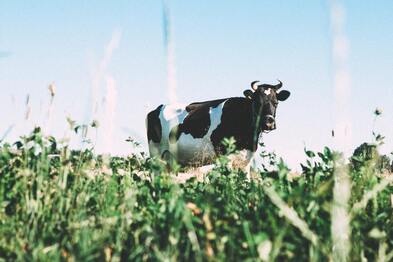 Milk is a staple in many people's diets, especially here in America’s Dairyland, and it’s often considered a healthy choice. However, the possibility of painful disruptions to your daily life from kidney stones can quickly turn people away from drinking milk—does milk really cause kidney stones? In this article, we'll skim fiction from facts and get to the bottom of what you may have heard about milk and kidney stones. Plus, we’ll provide tips for reducing your risk of developing kidney stones in general. What are the Different Types of Kidney Stones?First, it’s important to understand that there are various types of kidney stones, most of which simply couldn’t be caused by drinking milk.
Calcium stones: Calcium stones are the most common type of kidney stone. They are caused when calcium combines with substances in your urine—typically oxalate, but also phosphate in some cases. Does Calcium Cause Kidney Stones?Despite what the name ‘calcium stone’ suggests, calcium isn’t the culprit you might expect it to be. Calcium itself is unlikely to lead to the formation of kidney stones. This is because when calcium forms a kidney stone, it occurs after combining with substances like oxalates, which are found in foods like spinach, peanuts, most types of potatoes, and many more. A common misconception is that by avoiding calcium-rich dairy milk, you can avoid kidney stones. However, while milk is rich in calcium, it doesn’t have oxalates. Thus, drinking dairy milk won’t cause kidney stones. On the other hand, non-dairy milks aren’t as rich in calcium as dairy milk, but, being derived from nuts and other plants, they typically have oxalates. This means your risk for kidney stones could potentially increase if you substitute dairy milk for a plant-based milk. The notion that calcium can lead to kidney stones is dangerous, as calcium is an essential mineral for the body. Consuming an appropriate amount of calcium each day through food and drink not only reduces your risk for kidney stones, but also has health benefits such as:
Other Causes of Kidney StonesDrinking milk won’t cause kidney stones, but other dietary factors like consuming too much salt, sugar, and meat can contribute to kidney stones. That said, kidney stones can be caused by a variety of other factors, such as:
How to Reduce Your Risk of Kidney StonesTo avoid developing kidney stones, consider the following strategies for mitigating your risk:
Questions About Kidney Health? Turn to Milwaukee NephrologistsIn the end, milk doesn’t cause kidney stones, and cutting milk from your diet won’t stop you from developing them. The best way to reduce your risk of kidney stones is to stay hydrated, eat a healthy diet, and work with healthcare professionals to manage your medical conditions.
Your quality of life depends on organs like your kidneys, and being concerned about them is normal. If you have more questions about your kidney health, don’t delay. To schedule an appointment, contact Milwaukee Nephrologists’ kidney specialists today.
0 Comments
Your comment will be posted after it is approved.
Leave a Reply. |
